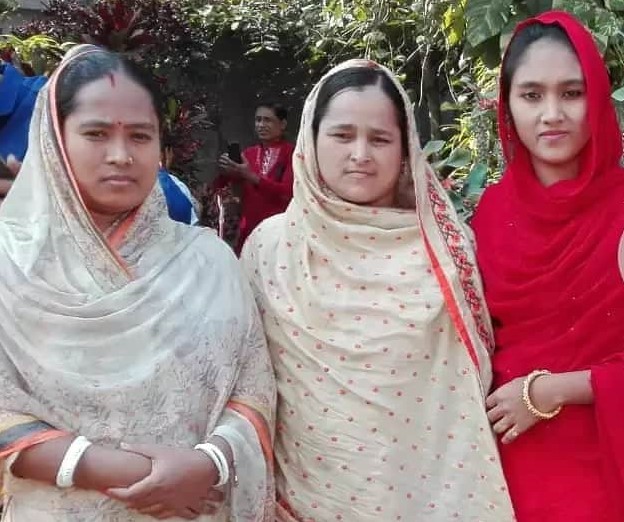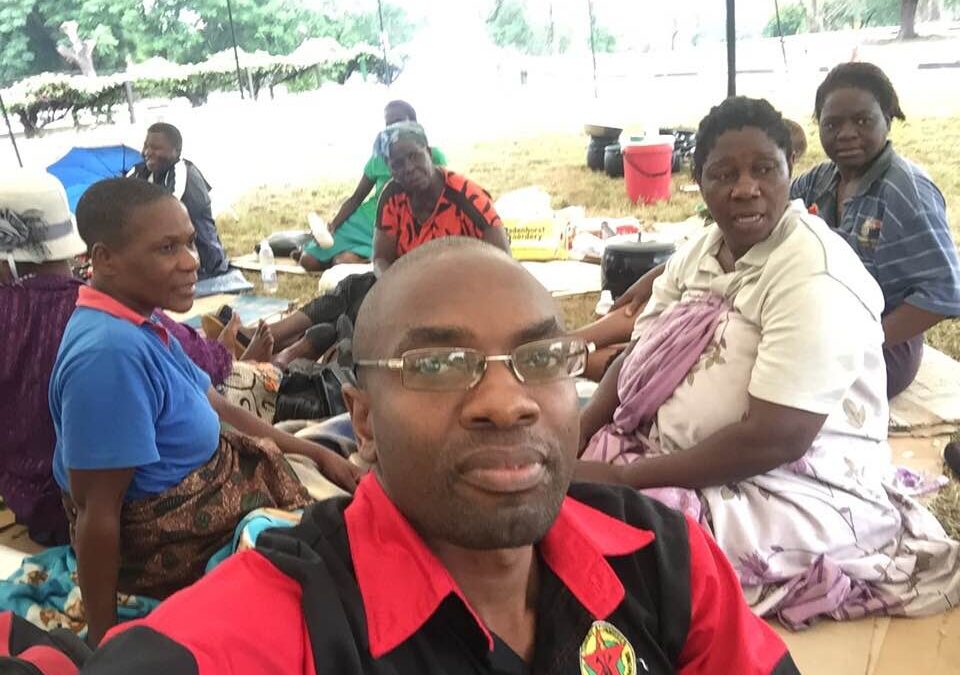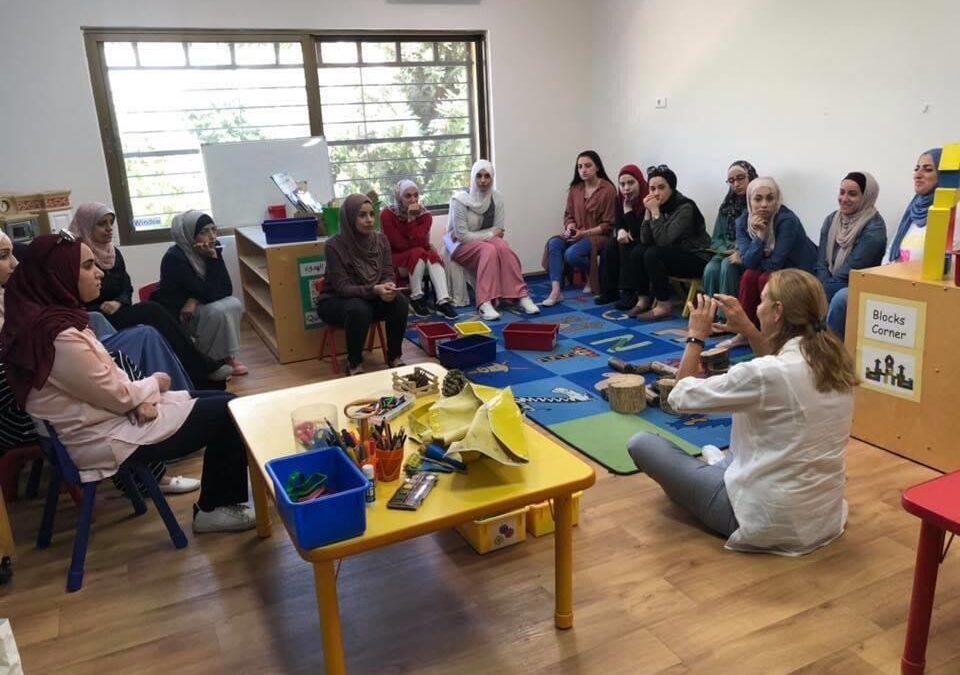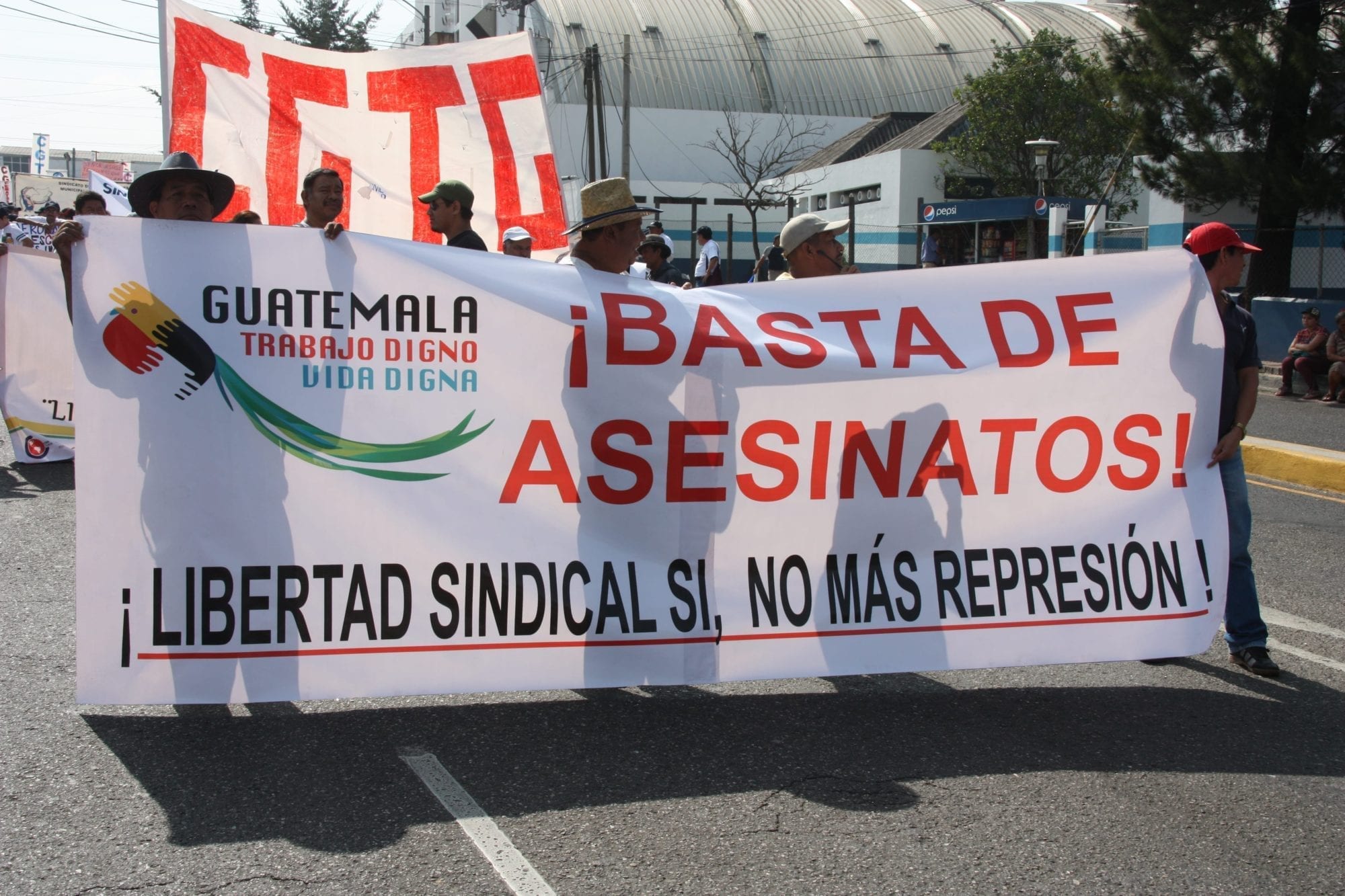
Jul 30, 2020
After hundreds of laid-off garment workers took to the streets of Ashulia, Bangladesh, and rallied at the Dhaka Export Processing Zone in recent weeks, factory management and the Bangladesh Export Processing Zones Authority agreed to compensate them with one month’s wages and the annual Eid festival bonus.

Maksuda: “When we united together, management had no choice.” Credit: Shumon Ali
Because all 130 retrenched workers had worked at the factory less than a year, the company was not required by law to provide them with compensation after they were laid off. Yet all the workers received between $150 and $315, a major achievement that Maksuda, one of the factory workers who took part in the action, says resulted from unity and collective action.
“I did not think we would get it, but when we united together management had no other choice. I am quite happy with the money I have received.”
The Talisman Limited factory workers are among tens of thousands of Bangladesh garment workers who have lost their jobs because of declining clothing orders worldwide following outbreak of the COVID-19 pandemic. The government reports that 29,369 garment workers have been laid off, but union leaders say the numbers are much higher.
Garment Workers Stand Together to Win Pay after Country-wide Layoffs
Workers and unions have been taking action at factories around the country in response to layoffs, and in many cases have blocked traffic or halted work to have their demands met. Overall, Bangladesh has lost more than $3.18 billion in orders since April and the start of COVID-19, according to the Bangladesh Garment Manufacturers and Export Association.
Maksuda, like the other retrenched factory workers, received her layoff notice by text message. Desperate to support her family, she joined with Farida, Tania and 11 other laid-off garment workers to contact the Solidarity Center for assistance.
The Solidarity Center legal team advised each worker to seek one month’s basic pay as compensation, along with a festival bonus. The next day, the leaders organized all the retrenched workers and went to the factory, but they found the factory gates locked and no management in sight, so they proceeded to the Dhaka Export Processing Zone to demand payment. In the process, they set an example of the concrete gains collective action can achieve.
Talisman Limited employs some 1,200 workers, at least 70 percent of whom are women.

Jul 28, 2020
The Zimbabwe police have placed Zimbabwe Confederation of Trade Unions (ZCTU) President Peter Mutasa on a “wanted list” and branded ZCTU as a terrorist organization following the union confederation’s calls for a national mobilization against government corruption and demands for decent wages for workers during the novel coronavirus epidemic.
“For defending workers’ rights, we are called terrorists by ZANU PF,” ZCTU said in a Tweet, referring to the ruling party, the Zimbabwe African National Union–Patriotic Front. “We are a bonafide trade union movement in terms of the law.”
Ongoing death threats and a sustained government crackdown forced Mutasa and ZCTU General Secretary Japhet Moyo into hiding in 2019, and union leaders across Zimbabwe have been repeatedly beaten, kidnapped and arrested with hundreds injured by security forces since the government of Emmerson Mnangagwa replaced long-time President Robert Mugabe in November 2017.
The United Nations in June called on Zimbabwe to immediately end a reported pattern of disappearances and torture that appear aimed at suppressing protests and dissent.
Since 2017, police have often used force to prevent worker protests against skyrocketing costs and shortages of essential items such as food and fuel. Zimbabwe’s currency has collapsed against the U.S. dollar and inflation has risen to more than 700 percent, wiping out Zimbabweans’ savings.
Zimbabweans Struggle as Inflation Destroys Salaries, Savings
The vast majority of workers in Zimbabwe support themselves and their families as market vendors, taxi drivers and in other informal economy jobs where pay is low and often uncertain, and sick pay and other benefits are nonexistent. In the formal sector, nurses, teachers and others have seen their incomes evaporate due to inflation, even as their salaries are already too low to cover basic needs.
Many Zimbabweans also face starvation, as parts of the country have been hit by severe drought. The UN World Food Program warned that food supplies will run out in 2020 unless urgent assistance is provided.
Yet the government imposed a $23 a month minimum wage during the pandemic lockdown that falls far short of the amount needed for families to survive, Mutasa said in a recent interview.
“Rent for a room is roughly $20, which means the majority of workers are earning just sufficient to pay rentals for one room. What about food, clothing, school fees, medical care, transport, etc.?”
ZCTU is urgently focused on “ensuring that workers get a reasonable minimum wage,” Mutasa said. “We also want an immediate change in the manner our country is governed. We have to fight against corruption, exploitation of our resources, illicit financial flows, shrinking democratic space, human and trade union violations as well as other governance deficiencies causing untold suffering to citizens.”

Jul 21, 2020
The Union of Moroccan Workers (UMT) is condemning the recent firing of journalist and television host Youssef Belhaissi and attacks on other members of his union, including Aziz Fathi, a union office coordinator, who was demoted from editor-in-chief.
The company had barred Belhaissi, deputy secretary-general of the union representing media workers at Medi1 TV, from appearing on screen since late June, a move condemned by union and media advocates. The union is an affiliate of the National Federation of Press, Media and Communication/UMT.
Fathi, who has reported on the dangers of the novel coronavirus and engaged in public advocacy and awareness of the pandemic, also saw his computer destroyed, according to UMT. His colleague, Hicham Faouzi, UMT first general secretary, also was demoted without cause.
The actions follow weeks-long demands by employees at Medi1 TV, which broadcasts news, business and financial markets and sports, for stronger sanitary measures to protect against spread of the virus, and for COVID-19 testing. Employees say the company has refused to allow workers eligible for teleworking to do so.
UMT says the company first responded to the workers’ demands for safe conditions by unilaterally closing Medi1 TV’s Rabat office and scheduling the transfer of all staff to Tangier in August amid the pandemic.
“Trade union action is neither a crime nor a misdemeanor,” UMT says in a statement. “It is guaranteed in the kingdom’s constitution, and in all international and regional covenants and agreements ratified by Morocco, a commitment that Morocco has made to itself in international and regional forums.”
Employers Use COVID Crisis to Target Workers
Employers worldwide are penalizing and even firing workers who demand their rights to safety measures to protect against COVID-19, and are using the pandemic to lay off workers, often targeting those seeking for form unions or exercise their rights on the job.
The crisis also has accelerated moves in recent years to limit press freedom, part of a global attack on democracy that often involves targeting individual journalists, media workers and sometimes entire press enterprises.
Morocco’s freedom of press score has fallen every year since 2015, according to World Press Index compiled by Reporters Without Borders (RSF), which ranks Morocco 135th out of 180 countries in its 2019 annual report on freedom of press.
In December, police arrested journalist Omar Radi for a nine-month-old tweet criticizing a judge, the 11th journalist imprisoned in Morocco since 2011, more than twice as many as the previous decade, according to the Committee to Protect Journalists.

Jul 16, 2020
Women’s rights groups and worker advocates in Jordan are hailing the re-opening of child care centers, a move they say enables women running small day care centers or working in larger nurseries to support themselves, while ensuing safe care for the children of women returning to their jobs after the novel coronavirus closures.
The more than 1,400 day care facilities across the kingdom opened July 4 under strict safety measures to limit the spread of COVID-19, including masks, social distancing and weekly exams for the children.
Since the beginning of the coronavirus crisis, “we called on the government to pay attention to women’s work conditions and labor rights in general, day care workers in particular,” says Randa Naffa, co-founder of SADAQA, an organization founded by working parents to advocate for family-friendly work environments.
As SADAQA campaigned to open day care centers, the organization joined with the Women in Business Arabia Network to create an online platform that shed light on the challenges day care center workers face, and spearheaded a Facebook campaign urging the opening of day care facilities.
“Women’s participation in the labor market is very weak, and the absence of the day care facilities is one of the reasons why women don’t join the labor market or withdraw from it,” says Naffa.
Women Back to Work Without Safe Places for the Children
Day care centers, which serve 50,000 children, remained closed weeks after other private-sector businesses were allowed to open, even though “working women had no choice but to go back to work,” says Tasneem Dudin, owner of a day care facility. Without access to licensed facilities, women were faced with a choice to leave their children alone at home or send them to unregistered nurseries that may not be following safe health practices, she says.
“Day care facilities are usually small projects for women who are struggling and facing the economic and social challenges,” Dudin says. Most facilities do not have bank accounts and typically employ workers day to day. Dudin estimates that some 90 percent of the facilities could not pay rent or workers’ wages after they were closed during the lockdown.
“The owners of these facilities couldn’t pay wages because of the economic crisis and many workers have been laid off and ended up unemployed,” says Mohammad Ersan, the host of Workers of the Country (عمال البلد), a worker-centered radio program launched last year in cooperation with the Solidarity Center. The June show featured Naffa, Dudin and others who discussed the need to open child care facilities.
Saba Yaseen says she cared for her two children, ages 5 and 2, throughout the lockdown as she teleworked from home, and her husband had to take off work to care for them when she had to leave for urgent matters. But once back at work, she would have not choice but to send the children to unregistered facilities if the formal facilities did not open, she said on the radio program.

Jun 30, 2020
Threats, including death threats, and intimidation were the most common forms of violence against union activists and workers seeking to form unions in Guatemala last year, according to a new report by the Network of Labor Rights Defenders of Guatemala (REDLG). (Read the full report and the Executive Summary in English.)
Several union activists were targeted with death threats in 2019, including Damaris Jiménez and Edgar Chiguichón, leaders of an organizing committee to form a union at a maquila, according to the 2019 Annual Report on Anti-Union Violence. Union leader Hector Reyes also received a death threat indicating he should resign from his job and end his efforts to form a municipal union in San Diego, a city in Guatemala’s Zacapa Department. Two other maquila union leader also received death threats.
REDLG, a Solidarity Center partner, has documented and verified 26 cases of anti-union over the past year. But these numbers represent severe underreporting. Fewer than half of survivors of anti-union violence in 2019 say they formally denounced the incidents “before a competent authority.”
Among the recorded cases, the most frequent was “criminalization,” or using the criminal justice system “for halting the work of a defender.” In some cases, criminal denunciations against a labor unionist are fabricated to prevent the accused from pursuing union work while challenging the charges, according to the report.
In other cases, the intention is to ensure a labor activist is imprisoned to completely halt the individual’s union activity—“that is, the criminal system or other punitive methods are used to discredit or hinder the defense of rights,” according to the report.
Guatemala: Violence Pervasive and Unpunished
Guatemala is consistently ranked among the countries with the world’s worst worker rights, according to the new International Trade Union Confederation’s 2020 Global Rights Index. “The pervasive climate of repression, physical violence and intimidation against workers and trade unionists” is made worse by the government’s “failure to pursue the many historic cases of murders and other violent crimes,” according to the Global Rights Index. Since 2004, the year the CAFTA-DR free trade agreement was signed, 101 trade unionists have been murdered in Guatemala, according to the International Labor Organization and the REDLG.
The Anti-Union Violence Report, which seeks to show that “anti-union violence is a complex social occurrence in Guatemala, of which we are far from knowing its depth,” points out that domestic violence and other forms of gender-based violence are rarely reported and in fact may sometimes be directed at women for their involvement with unions. “This type of violence can be normalized and go undetected,” according to the report, which points out that vulnerable groups such as members of the LGBTQI+ community, Indigenous people and persons with disabilities also are targets of such unreported anti-union violence.
The report situates the struggles by workers to form unions within the country’s larger economic challenges, including vast poverty affecting those with jobs who do not earn enough to support themselves and their families. Some 70 percent of all workers are in the informal economy, selling food in markets, driving taxis and cleaning homes. Yet for the first time in 10 years, the government last year did not raise the minimum wage in any job sector. The government also issued a decree that sought to create jobs in the formal economy with lower benefits than allowed by law and wages lower than the minimum, a move unions in part successfully countered.






